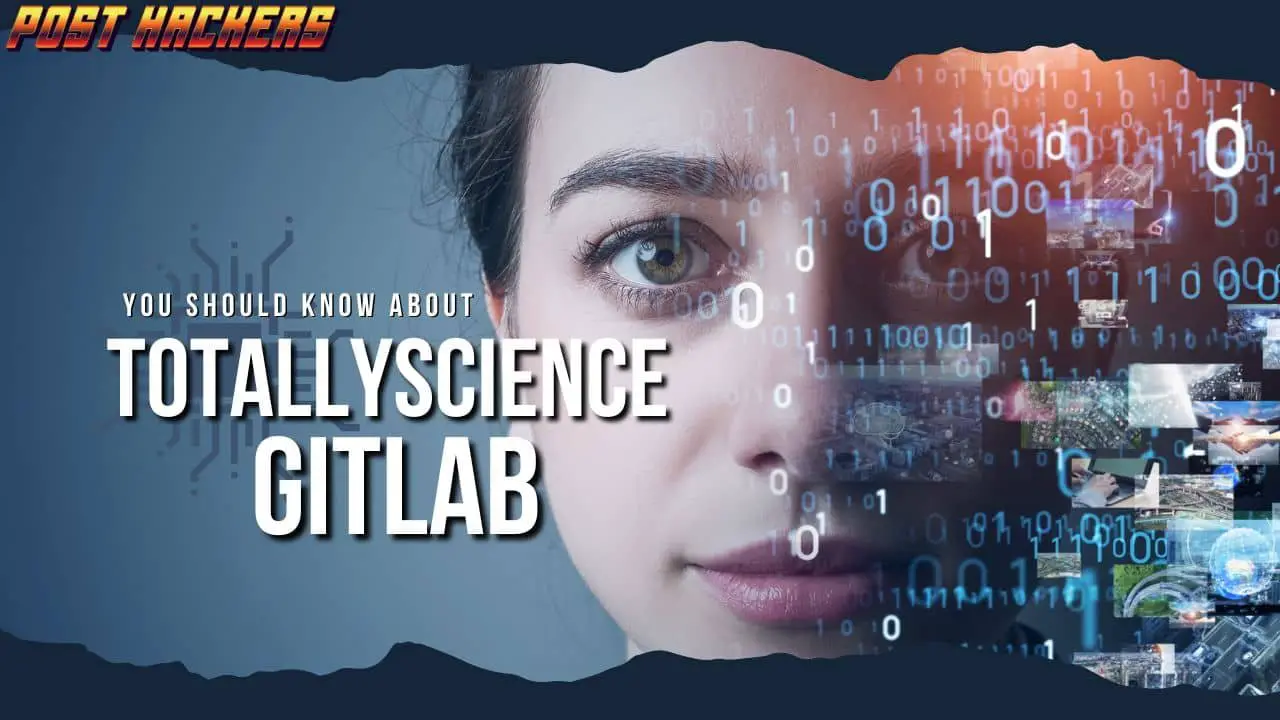Published
1 year agoon
By
Jack
Table of Contents
ToggleScientific research plays a vital role in advancing our understanding of the world and driving technological progress. However, the process of conducting research and collaborating with fellow scientists can be complex and time-consuming. In recent years, the emergence of collaborative platforms tailored specifically for the scientific community has revolutionized the way researchers work together. One such platform making significant waves is Totally Science GitLab. In this article, we will explore the features, benefits, and impact of Totally Science GitLab on scientific collaboration.
Scientific research often involves multidisciplinary teams working together on complex projects. Traditionally, collaboration relied heavily on emails, shared folders, and outdated systems, leading to difficulties in version control, document sharing, and tracking progress. This fragmented approach hindered the efficiency and productivity of research teams.
To address these challenges, the scientific community sought a solution that would streamline collaboration, enhance efficiency, and foster innovation. Enter Totally Science GitLab—a platform built specifically for the needs of researchers, scientists, and academics.
Totally Science GitLab is an all-in-one collaboration platform that combines the power of version control, project management, and team collaboration into a single integrated environment. Inspired by the popular GitLab platform, Totally Science GitLab is customized to cater to the unique requirements of scientific research.
With its user-friendly interface and robust features, Totally Science GitLab empowers scientists to work together seamlessly, enhancing productivity, knowledge sharing, and overall research outcomes.
Version control is crucial in scientific research, allowing researchers to track changes, revert to previous versions, and maintain an organized history of their work. Totally Science GitLab incorporates Git—a widely adopted version control system—providing scientists with a reliable and efficient way to manage their research projects.
Collaboration lies at the heart of scientific progress. Totally Science GitLab offers a range of collaborative features, including real-time editing, commenting, and task assignment. Researchers can collaborate on code, documents, datasets, and more, ensuring everyone is on the same page and fostering a culture of teamwork.
Tracking issues and resolving them promptly is essential for smooth project management. Totally Science GitLab integrates an issue tracking system that enables researchers to report and manage project-related problems efficiently. This ensures that any roadblocks or bugs are quickly identified and addressed, keeping the research process on track.
Proper documentation is vital for reproducibility and transparency in scientific research. Totally Science GitLab provides a dedicated space for researchers to create and maintain comprehensive documentation. From experiment protocols to research findings, this feature ensures that valuable knowledge is documented and readily accessible to the research team.
Totally Science GitLab has transformed the way scientific collaboration takes place, leading to several notable benefits:
The versatility of Totally Science GitLab makes it suitable for a wide range of scientific disciplines and research projects. Whether it’s computational biology, astrophysics, climate modeling, or material science, the platform adapts to the specific needs of each field, providing researchers with a robust framework to collaborate effectively.
Scientific research often involves sensitive data and intellectual property. Totally Science GitLab prioritizes security and data privacy by employing advanced encryption techniques, access controls, and user authentication mechanisms. Additionally, researchers have the flexibility to choose between self-hosted deployments or the cloud-based infrastructure offered by Totally Science GitLab.
As scientific research continues to advance, the importance of efficient collaboration becomes even more critical. Totally Science GitLab is at the forefront of this evolution, continually innovating to meet the changing needs of researchers worldwide. With its user-centric design and focus on enhancing scientific collaboration, Totally Science GitLab is poised to revolutionize the way we conduct research and accelerate scientific breakthroughs.
In a world where scientific advancements drive progress and innovation, collaboration among researchers is paramount. Totally Science GitLab emerges as a game-changing platform that empowers scientists, enabling them to collaborate seamlessly, share knowledge, and achieve breakthrough discoveries. By combining the power of version control, project management, and team collaboration, Totally Science GitLab is revolutionizing scientific research and propelling us towards a brighter and more interconnected future.
10.1 How does Totally Science GitLab differ from other collaboration tools? Totally Science GitLab is specifically designed for the unique needs of scientific research. It incorporates features like efficient version control, integrated issue tracking, and comprehensive documentation, making it a comprehensive solution tailored to the scientific community.
10.2 Can I use Totally Science GitLab for non-scientific projects? While Totally Science GitLab is primarily aimed at scientific research, its features and collaborative capabilities can also benefit other projects that require version control, efficient collaboration, and project management.
10.3 Is Totally Science GitLab compatible with popular coding languages? Yes, Totally Science GitLab supports a wide range of coding languages commonly used in scientific research, including Python, R, MATLAB, and more. Researchers can collaborate on code written in these languages seamlessly.
10.4 Are there any pricing plans for Totally Science GitLab? Totally Science GitLab offers flexible pricing plans, including free tiers for individual researchers and academic institutions, as well as enterprise plans for larger teams and organizations. The pricing structure ensures accessibility for researchers of all scales.
10.5 Can I migrate my existing projects to Totally Science GitLab? Yes, Totally Science GitLab provides migration tools and support to help researchers seamlessly transition their existing projects to the platform. This ensures a smooth and hassle-free integration of ongoing research into the collaborative environment.
